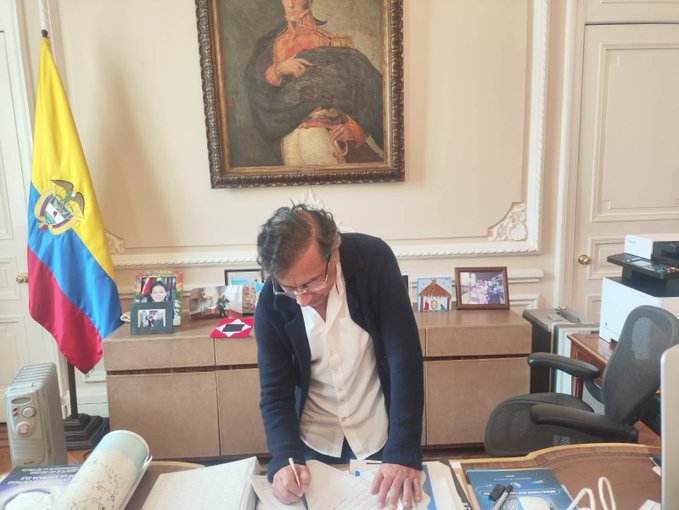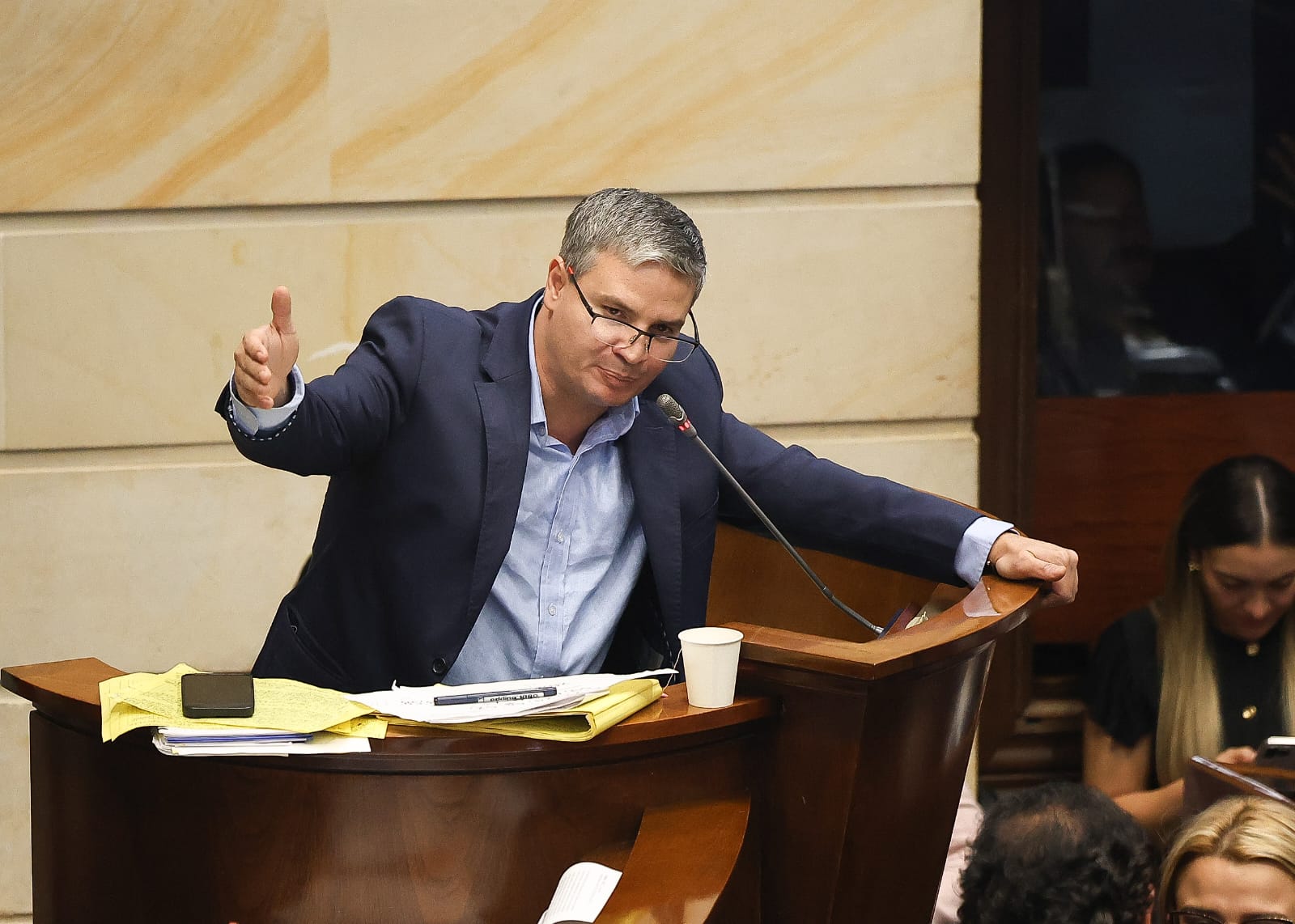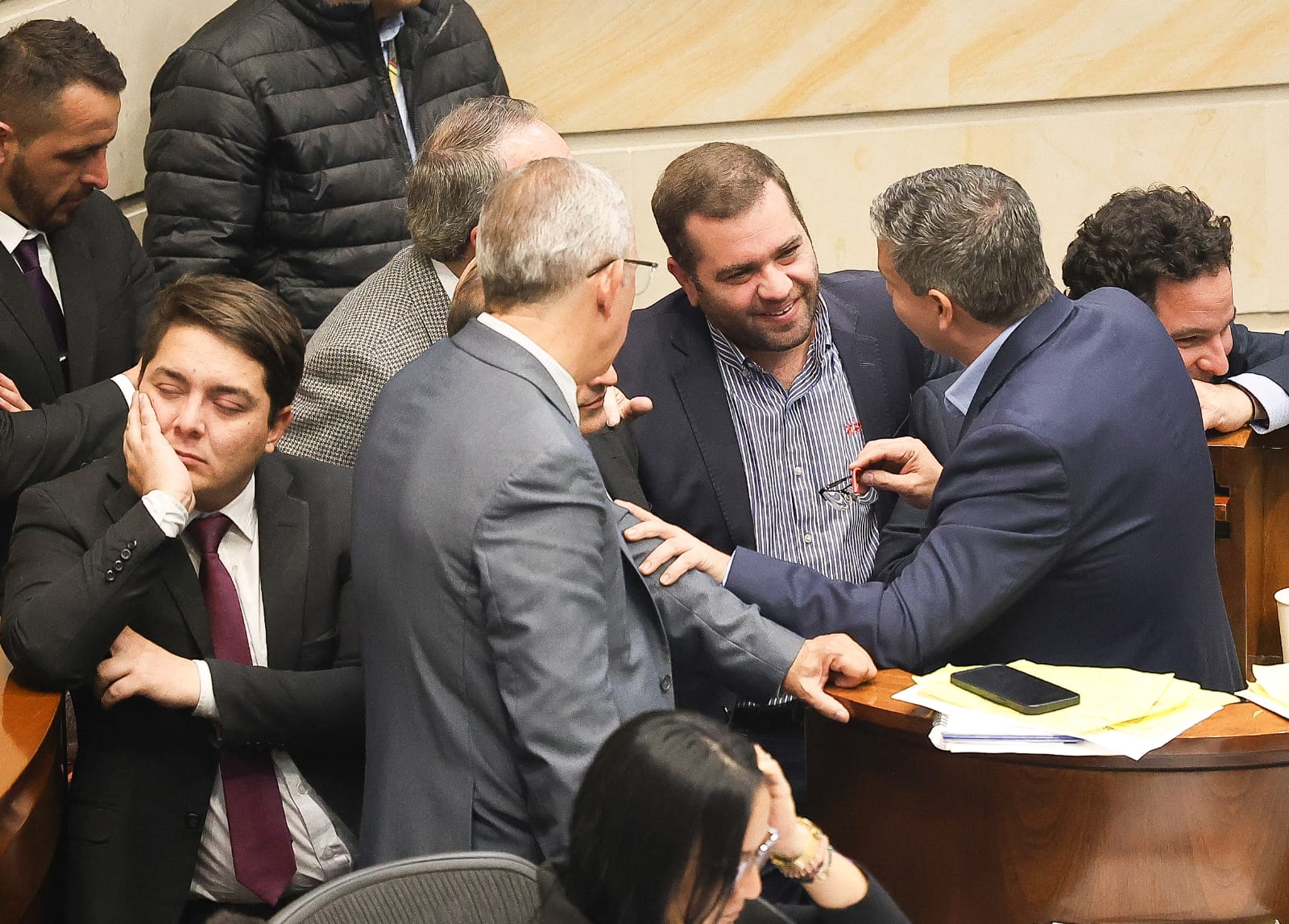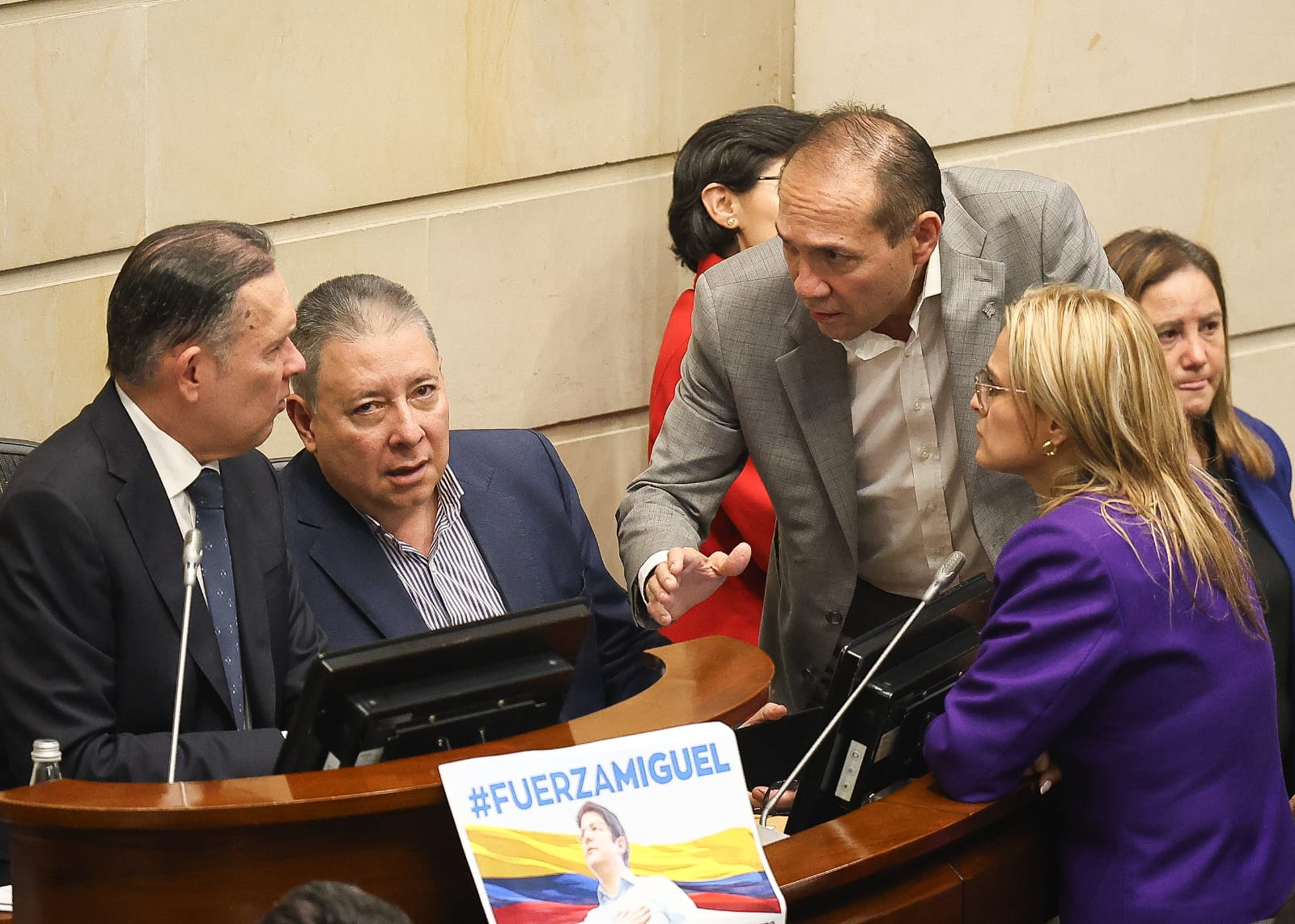Labor reform advances amid referendum decree: this is how the day went in the Senate

In the Senate plenary session, consensus prevailed over the pressure exerted by President Gustavo Petro with the signing of the decree calling for the referendum. Although only a block of articles was approved, the senators assured that they would not be pressured by the president and would vote freely.
The resounding vote that ultimately sank the alternative proposal by Historic Pact Senator Aida Avella was a foretaste of what was to come. The 57 votes against ultimately scuttled the document that presented almost 100 percent of the provisions approved in the House of Representatives.

President Gustavo Petro signing the decree calling for the referendum. Photo: @petrogustavo
During the presentation of the majority report, Senator Juan Felipe Lemos defended what was approved by the Fourth Committee. He stated that this report maintains 47 articles that remain the same and 22 have been modified and adjusted based on judicial decisions and legislative techniques.
"Labor reforms, in addition to vindicating workers' labor rights, must help resolve informality, one of the serious problems facing the Colombian labor market," said the U Party congressman.
He also took the opportunity to refer to the head of state's signing of the "decree" and asserted that the reform is the backbone of the referendum.

Senator Juan Felipe Lemos, the reform's sponsor. Photo: Néstor Gómez / El Tiempo
"The bulk of the issues for the referendum that President Petro wants to advance are listed here. There's no need to ask the people, because the social demands they want to defend in the streets have already been addressed," he asserted.
For his part, the initiative's other sponsor, Senator Jhon Jairo Roldán, stated that they met this morning with the Minister of Labor, Antonio Sanguino, and the director of SENA, Jorge Londoño, and managed to compile seven articles, while adding others.
"I hope we're able to reach an agreement now, here in the study of the articles. Given the composition of the Fourth Committee, we're still structuring the report for the second debate, but we've reached agreements," Lemos said.

Only 17 articles were approved during the debate. Photo: Néstor Gómez / El Tiempo
The majority proposal was approved with 67 votes in favor and 25 against. The first block of 17 articles was then voted on, with 85 votes and 5 against. The few congressmen who did not support the block were the senators of the Historic Pact, Sandra Jaimes, Alex Flórez, and Ferney Silva. Also present were Senators Berenice Bedoya (ASI) and Miguel Ángel Pinto (Liberal Party).
The government also led a petition requesting that the bill be debated article by article , which, curiously, was the same request the opposition had made in the House, but was denied.
"If this proposal were submitted to the public for consideration, and not to a few senators, this would certainly not be the proposal we call the majority. It would be the proposal we just sank without much debate," said Pact Senator Esmeralda Hernández.
For his part, the Minister of Labor recalled the episode in which the initiative was defeated in this same plenary session. "We had to overcome a misguided attempt to shelve the reform bill. We had to wait 10 weeks of the appeal being shelved to revive the discussion of the labor reform," said the head of the ministry.

Minister of Labor Antonio Sanguino during the discussion on labor reform. Photo: Néstor Gómez / El Tiempo
Although a break was taken during the session for a committee to meet to reach consensus, this did not happen. During the plenary session, the same speakers submitted a proposal to create a subcommittee to study the new articles, and with proposals, the proposal was approved with 84 votes.
The plenary session adjourned with the commitment to vote on the remaining article this Thursday and move forward with the subcommittee they created.
Maria Alejandra Gonzalez Duarte
eltiempo





